Every day begins with the blessing of the mountains. The past few days, the snow-dusted peaks are shrouded in misty clouds that pass by the summits and keep the sky in a crepuscular state for much of the day.
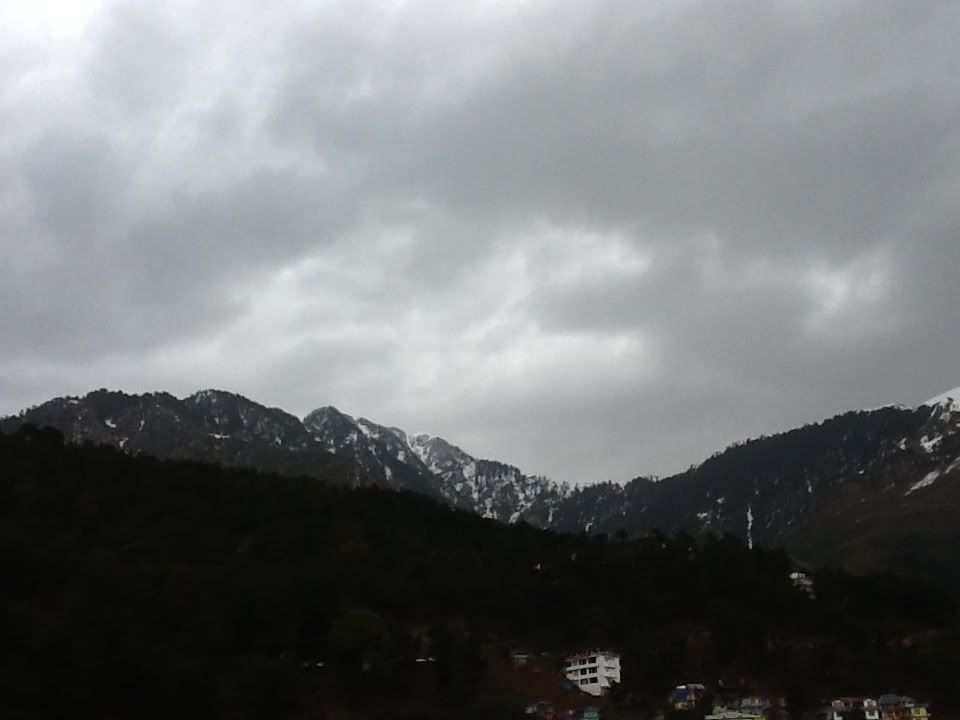 We strolled down Bagsu in search of a cafe or restaurant at which to sit and chat. The clouds had descended to the road and rendered our walk dream-like. A burgundy robed figure came forward and disappeared into the dream. At the end of the street is The Bagsu, a fairly massive hotel and well-appointed but we agreed that the restaurant was too dark, empty and uninviting. We decided to head back to the main market for our sit.
We strolled down Bagsu in search of a cafe or restaurant at which to sit and chat. The clouds had descended to the road and rendered our walk dream-like. A burgundy robed figure came forward and disappeared into the dream. At the end of the street is The Bagsu, a fairly massive hotel and well-appointed but we agreed that the restaurant was too dark, empty and uninviting. We decided to head back to the main market for our sit.
On the way back, looking down into the valley was more magic; pines like seaweed under the waves of clouds. The sun was a brightening orb pearl in the sky, still behind a veil of mist and smoke.
I held my silence as brother and sister spoke, stopped and greeted people here and there on this second day of Losar, the Tibetan New Year. Despite the car horns and motorcycle beeps, even the ambient noise seemed muted by the clouds, although by now, these had passed and the sky was lightening somewhat.
at the cafe overlooking the main square, we discussed my travel plans, the day before each had had before meeting and watched the sun attempt to burn through the clouds. Perhaps the that was a trace of blue behind a diaphanous puff of cumulus. The hawker for the Tibetan Youth Congress below seemed to grow louder, so we took ourselves inside where we had our coffees and chatted about this and that. My second cup was called an "Ethiopian Coffee". I don't know if it was genuine Ethiopian. I suspect not. I know my coffees pretty well and there wasn't much flavor in this. Additionally, it was dressed with steamed milk and I think what it amounted to was someone at the cafe's idea of how to market a extra large cappuccino.
It caught the attention of a young American fellow sitting to my left and I told him I didn't think this was Ethiopian,but it might actually taste better without the steamed milk. He thought it worth ordering and tried to order one without the dairy. That didn't happen, but we struck up a conversation about Houston,which led to a discussion about my years in the book business which somehow got us on the subject of buddhism, a topic that provides, I'd guess, a good sixty-five to seventy-five percent of the conversation around here.
His questions were pretty of the moment for him and we had a engaging discussion a out what Buddhism, specifically Tibetan Buddhism, is becoming in its American context. He noted that in the States he seemed to detect a lot of "Buddhism Lite"; a Buddhism that doesn't particularly pay a lot of attention to karma and rebirth, for example, and that seems to focus on a more psychotherapeutic approach. I agreed and added that this might be the salient different between how Buddhism in general is migrating to the west, but specifically (again, the specific) with regard to Tibetan Buddhism, it's taking an interesting turn.
He asked what I thought about it and I used an answer I've kept in my back pocket for a while. Frankly, Buddhism is psychology. Of the highest order. But also, I think it's fair to say that people are looking for a safe place to grow when they get involved in dharma. You do, after all, "go for refuge". We talked a little more about how once in with dharma teachings nd practice, the cross-cultural dialog becomes more intriguing. As he said, many of the monks he met said that teachings are very different in Tibet where there is no question or answer period after the discourse and you canbe pretty sure that emotional issues, personal problems and the like are probably not bandied about in the open, either. He asked me what I thought about that.
I said that's one of the big differences between the traditional approach and what happens in a Euro-American context. A lot of the lamas I know like teaching in the west because they enjoy the questions, they respect the seriousness that westerners bring to the teachings as they feel that the questions are for the most part genuine and not superficial. In the longer term we'll see.
I recently where it's not so much a matter of Buddhism adapting to westerners as westerners adapting to Budshism. This may be so, but it glosses over cultural nuances and understanding of the steps of evolution in the forms Buddhism does, in fact, take when transitioning into a new environment. And let's be sure, Buddhism is not monolithic. Plus, it's entering, been entering a highly diverse and pluralistic world. It might make more sense to think in terms of Buddhisms.
I think what the west brings to the table, for instance, is a philosophical (and for that matter, psychological) vocabulary that may help render the Buddha's teachings more important in a lived sense (as opposed to a merely devotional one, though I hasten to add, those aspects are extremely important as well for a "lived sense").
He asked about my teachers, the different lineages and the one, as he put it, that I've aligned myself with. I was quick to correct him that while in the break-out of the population of my teachers, one lineage or family (thanks to Bob Thurman for that) is predominant, I don't play party favorites. I've started with teachers from all the various families, but/and I do mostly perform the practices of one or more than the others, but where there's a connection, I try to be as faithful to the lama from whom I received the teachings or practices. In fact, that was sort of a touchstone for me; it's the lama more than the lineage for me.
As these things go, this was a good conversation; however, I realized I'd neglected my friends (although they didn't seem to mind - I think they had plenty of other things to talk about) and we soon took our leave. The three of us parted at the foot of the walk way to their building and I headed down the steps to my apartment where I sat and meditated for an hour or so.
For a short bit, I was wondering where I'd go out for dinner; I hadn't checked email because none of the places that had wi-fi were open. The one that did have it, hadn't opened earlier, so I thought to go there; but then, something better occurred to me. Why go out and sit in a cafe (again) when you're not exactly enamored of the idea? Funny mind, funny thoughts.
This is the crux of so many of our issues; identifying with thoughts, giving them so much more influence than they need, which in turn, seems to lead us to just "do stuff" for the willy-nilly sake of doing stuff. Email can wait, downloading that text can wait. Sipping tea at home and reviewing this day is more precious to me. Saving the document, shutting down and doing another sit before bed is even more so.


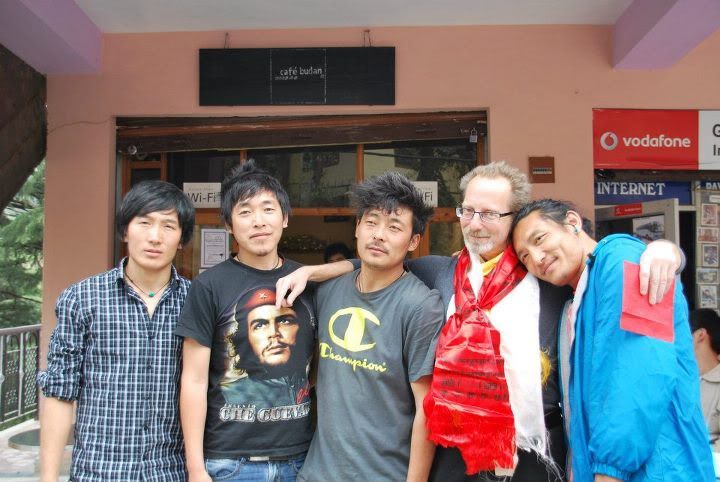
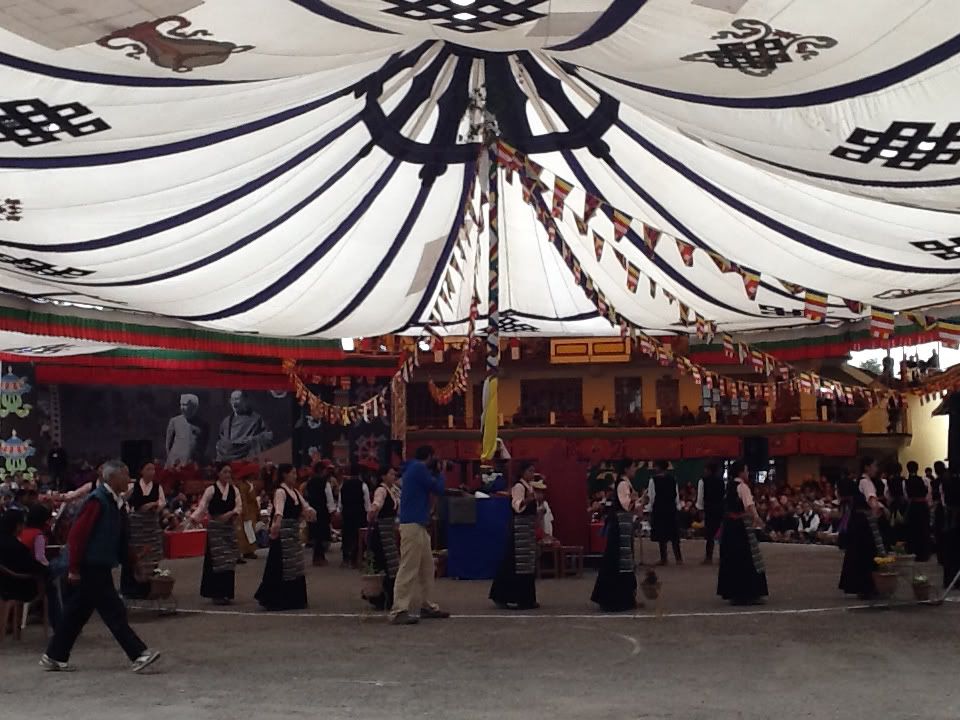 The news came to me as I was filming the last opera at TIPA. It's difficult to watch this now without understanding that the reason I get to see a Tibetan folk opera outside of Tibet, of necessity, is the same as the cause for which this man and others have set themselves afire.
The news came to me as I was filming the last opera at TIPA. It's difficult to watch this now without understanding that the reason I get to see a Tibetan folk opera outside of Tibet, of necessity, is the same as the cause for which this man and others have set themselves afire.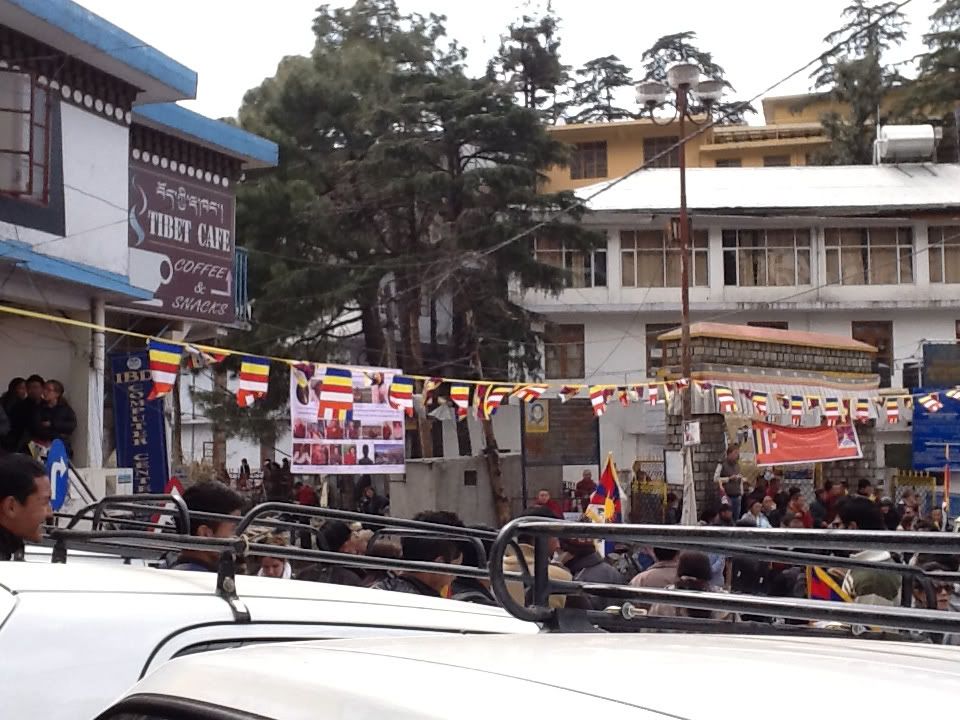
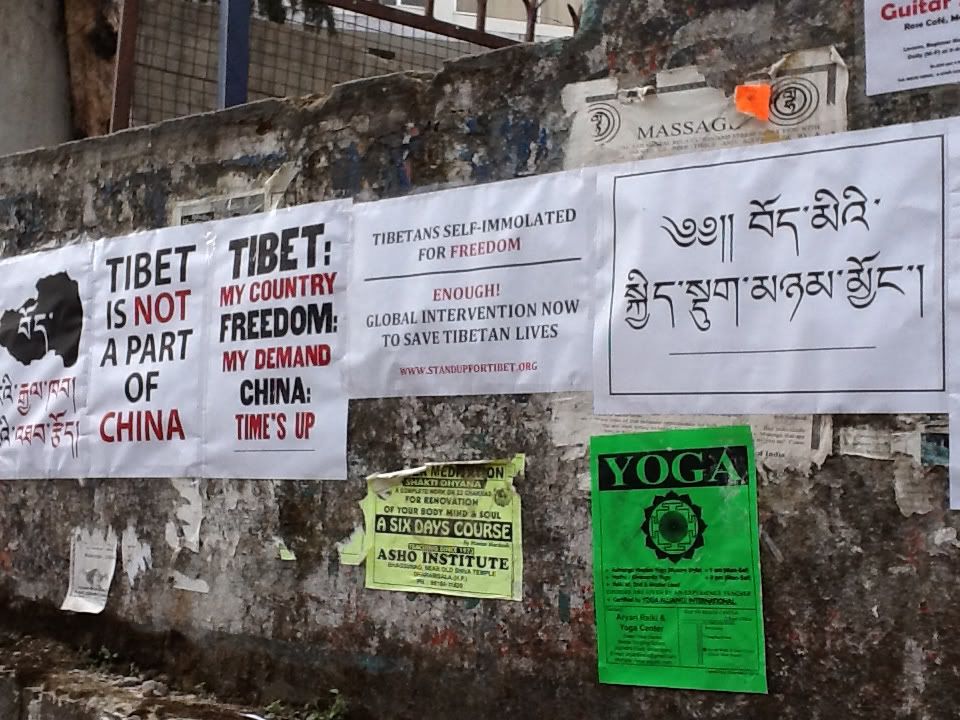
 We strolled down Bagsu in search of a cafe or restaurant at which to sit and chat. The clouds had descended to the road and rendered our walk dream-like. A burgundy robed figure came forward and disappeared into the dream. At the end of the street is The Bagsu, a fairly massive hotel and well-appointed but we agreed that the restaurant was too dark, empty and uninviting. We decided to head back to the main market for our sit.
We strolled down Bagsu in search of a cafe or restaurant at which to sit and chat. The clouds had descended to the road and rendered our walk dream-like. A burgundy robed figure came forward and disappeared into the dream. At the end of the street is The Bagsu, a fairly massive hotel and well-appointed but we agreed that the restaurant was too dark, empty and uninviting. We decided to head back to the main market for our sit.